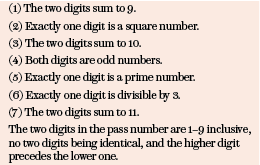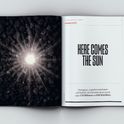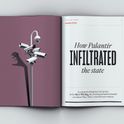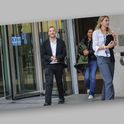The 2020 Winter SpecialDon’t pathologise populism
Too many intellectuals are unable to look dispassionately at populism. Cas Mudde is a case in point. His comment about rethinking liberal democracy (“Liberalism on the front foot,” Jan/Feb) is mainly unobjectionable but notice those weasel phrases about conservatives winning on radical right agendas and normalising the far right.
Not long ago Mudde was one of the most original analysts of populism, arguing that its central concerns are also, in milder form, at the centre of mainstream politics. The implication was that populism, at least in its non-extreme forms, was a legitimate counterbalance to liberalism.
Alas, he has now joined Paul Mason and others in the extreme claim that far-right populist ideas have taken over mainstream politics and in his lectures even cites my book as an example.
But the takeover has clearly gone the other way. Boris Johnson has co-opted and adapted populist ideas, won a thumping majority and sent Nigel Farage packing. Johnson is not threatening minority rights by implementing the result of a democratic referendum, and presides over the most ethnically diverse UK cabinet ever. By pathologising the views of perfectly decent people who are uncomfortable with the post-national drift of European politics, Mudde contributes to the polarisation of political life.
David Goodhart is the founding editor of Prospect and author of “The Road to Somewhere” (Penguin)
Taxing properly
Emmanuel Saez and Gabriel Zucman remind us that governments are not bystanders when it comes to corporate taxation and that there is an alternative to self-defeating tax competition (“Companies paying their taxes,” Jan/Feb).
There is currently a process of OECD negotiation that will hopefully lead to a set of accounting rules to relate tax bills to where profits originate rather than, as now, where companies choose to declare them.
These authors deal with what happens in the meantime, in effect recommending that home country-based companies should be taxed by home country governments, as in the US, on their global income and profits. That is theoretically possible but the idea of a currently weakened UK taking on the US and other major economies in a war over tax revenue is unconvincing. Nor is it clear that the UK has more to gain than lose from changing the base of corporate tax.
We need to have realistic expectations about corporate tax, much of which, when paid, is passed on to consumers. Taxing dividends and capital gains effectively is a more effective and direct way to get wealthy people who live in our country to pay their fair share.
Vince Cable, former leader of the Liberal Democrats and former business secretary
Scarier than climate
In his article “The new arms race” (Jan/Feb), Jeffrey Lewis has highlighted one of the most pressing and dangerous issues facing mankind. And he is right: nobody does seem to care. The eyes of world leaders are elsewhere. Certainly in the UK, Brexit has blinded ours.
Without concentrated action, the New START nuclear arms reduction treaty will lapse in 2021 with nothing in its place. The lack of dialogue between Russia and the US when they are spending trillions on updating and producing new nuclear wonder weapons is chilling. Both countries now seem to be of the opinion that nuclear weapons are for warfighting rather than the harbinger of mutually assured destruction.
We should be afraid, and the permanent members of the UN Security Council must act now to get the large nuclear powers to the negotiating table. The risks of not doing so put those of climate change into the shade.
Alan West, former first sea lord
History is rich with examples of instability in international relations. It is no surprise that the see-saw between the vicissitudes of the Cold War, replaced by treaties and a fancied end to east/west confrontation, has moved to renewed alarm, as Lewis’s thoughtful
analysis shows.
Superpower nuclear agreements that are now being abrogated or ignored gave some measure of stability, but would never have provided a full spectrum of safeguarding in a flourishing cyber age. So should renewed efforts be made to re-establish broad treaty consensus, complicated by this added dimension and a new third player? The value of competitive advantage is deeply embedded in the human psyche. New approaches should start from that reality.
David Craig, former chief of the air staff
Education still counts
Tom Clark’s article (“The Social Mobility Trap,” Jan/Feb) highlights the importance of the labour market in improving social mobility. Yet the idea that politicians were wrong to fixate on education is a big leap.
Our work has shown that those from advantaged backgrounds are increasingly likely to outperform poorer pupils in school and that this is a main driver of declining mobility in the UK. This is in line with theories that highlight education as a key policy lever.
The idea that we’ve “tested to destruction” education policy for improving life chances gives far more credit to policy makers than deserved. Reforms have tinkered around the edges. But crucially high-quality education is not open to all. We need smarter policy design to fix this, starting with school admissions. Lindsey Macmillan, UCL Institute of Education
Doing manual work should not be viewed as a plight one has to “step up from,” as Clark puts it. My father spent decades working as a bricklayer on the continent. He took pride both in the complex skill-set he mastered and his ability to carry out demanding physical work. Strange as it may seem, he did not view wearing a suit and sitting behind a desk in some “elite” sector as the apotheosis of human achievement.
This does not mean that he was oblivious to the downside of manual work. Only that it should not be seen as either a state of grace or as a state of sin from which people should strain every sinew to escape. It will continue to be a vital part of any society, and those who carry it out should simply be given respect and equitable reward for the contribution they make.
Ivor Morgan, Lincoln
Parliament’s pomposity
Rafael Behr is right to question the pomp and ceremony of our -parliamentary tradition (“This house is no longer a fit home for British democracy,” Jan/Feb). It dates from a time when politics was a closed shop. Outsiders were supposed to feel a sense of awe and intimidation: clothes they could never afford, rituals they didn’t understand, turns of phrase that made the simplest idea
impenetrable.
But in a true democracy, parliament should feel welcoming to all its citizens. A decade ago, we stopped judges from wearing wigs in the family courts, recognising that awe and alienation are not the emotions we want children and parents to experience. They might belong in a criminal court, but not elsewhere. Our parliament should take the same approach. Openness is more important than tradition.
Polly Mackenzie, Demos
A puzzled reader
I set your November puzzle about deducing a two-digit passcode from seven statements, three of which are false, to my 13-year-old son, having come up with the answer that you supplied in the subsequent issue—92. Your explanation follows the logic I used. But he surprised me by coming up with another two answers which I believe are also valid. If you assume that all three of (1), (3) and (7) are incorrect, then 95 and 97 are valid as they fit the other four criteria. He didn’t arrive at
92, however! Is he correct in principle? Finlay would be chuffed should you choose to share the alternatives with your public.
Andy and Finlay Waters, via email













